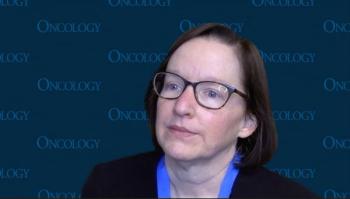
Advocacy groups such as Cancer Support Community and the Leukemia & Lymphoma Society may help support patients with CML undergoing treatment.

Your AI-Trained Oncology Knowledge Connection!


Advocacy groups such as Cancer Support Community and the Leukemia & Lymphoma Society may help support patients with CML undergoing treatment.

Paolo Tarantino, MD, discusses the potential utility of agents such as datopotamab deruxtecan and enfortumab vedotin in patients with breast cancer.

Paolo Tarantino, MD, highlights strategies related to screening and multidisciplinary collaboration for managing ILD in patients who receive T-DXd.

The panel concludes the discussion by offering future perspectives on the evolving treatment landscape in multiple myeloma, highlighting exciting developments and ongoing research.

Data from the REVEAL study affirm elevated white blood cell counts and higher variant allele frequency as risk factors for progression in polycythemia vera.

Experts on multiple myeloma provide clinical insights on how they triage and prioritize patients to best utilize available resources.

Myeloma specialists discuss their approaches to determining the optimal timing for leukapheresis for patients awaiting CAR T-cell therapy.

Donna Catamero, ANP-BC, OCN, CCRC, presents the case of a 77-year-old patient who experienced ICANS following CAR T-cell therapy and describes the role of the ICE score.

Experts on multiple myeloma provide clinical insights on strategies to manage or mitigate CRS, highlighting premedications, the role of bridging therapy, and potential treatment strategies.
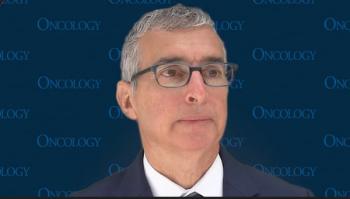
Additional analyses of patient-reported outcomes and MRD status in the QuANTUM-First trial are also ongoing, says Harry P. Erba, MD, PhD.

Overall survival data with blinatumomab in the phase 3 E1910 study may be an “important development” in CD19-positive B-ALL.

Intraoperative radiation therapy may allow surgical and radiation oncologists to collaboratively visualize at-risk areas in patients with cancer.
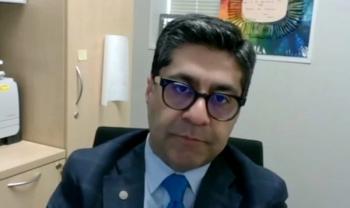
Positive margin rates have not appeared to improve for patients with cancer undergoing surgical care based on several prior studies.
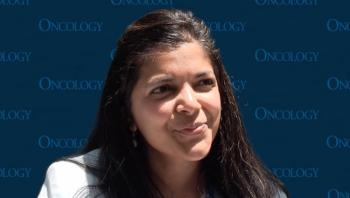
Investigators must continue to explore the space for lisocabtagene maraleucel in mantle cell lymphoma, according to Manali Kamdar, MD.

Those with CML should discuss adverse effects such as nausea or fatigue with their providers to help optimize their quality of life during treatment.

Continuing discussion centered on a patient case, the panel discusses bispecific antibody combinations and the role of BCMA-targeting CAR T-cell therapies in relapsed/refractory multiple myeloma.

Adriana Rossi, MD, presents the case of a 60-year-old patient with stage III kappa light chain multiple myeloma, and members of the panel provide their initial impressions.

Patients with CML can become an active part of their treatment plan by discussing any questions that come to mind with their providers.
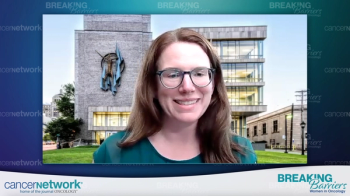
Public health researchers highlight how they learned to overcome and adapt to disparities observed during their careers.

The panel discusses the mechanisms believed to cause cytokine release syndrome associated with CAR T-cell therapy and the signs and symptoms.

Focusing on the transition of patients from community practices to academic centers, the panel discusses the initial evaluation and treatment processes, focusing on bridging therapy for patients awaiting CAR T.

A panel of experts on multiple myeloma introduce themselves and discuss the initial process of identifying patients who are potential candidates for CAR T-cell therapy.

Beth Faiman, CNP, PhD, presents the case of a 76-year-old woman with multiple myeloma who experienced cytokine release syndrome (CRS) following CAR T-cell therapy.
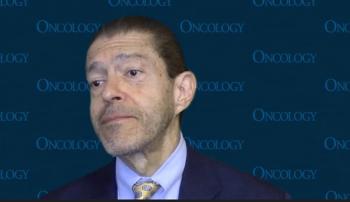
Jorge E. Cortes, MD, emphasizes proper communication between patients with chronic myeloid leukemia and their providers during the treatment course.

Health economists discuss their interests in the outcomes observed from the Affordable Care Act and its impact on specific populations.

Dietary interventions or other medications may help mitigate diarrhea in patients who undergo therapy for chronic myeloid leukemia.

Considering notable adverse effects associated with treatment may be critical when selecting therapy options for those with CML.
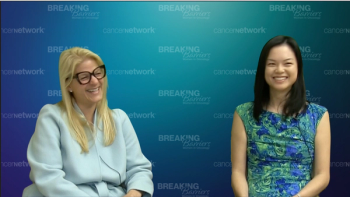
The field of breast oncology is constantly evolving to include trial diversity and multidisciplinary care.

The panel discusses the utilization of CAR T-cell therapy for patients with multiple myeloma, highlighting treatment selection, sequencing, and insurance considerations.

The panel concludes its discussion with key takeaways on the evolving role of CAR T-cell therapy in the treatment of patients with relapsed/refractory multiple myeloma.